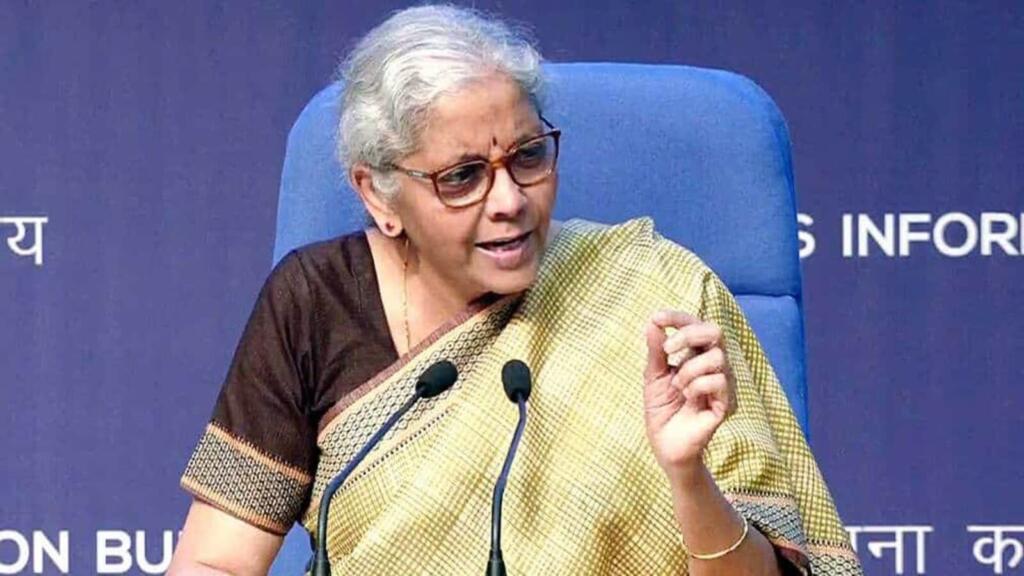The Economic Survey 2023-24, recently presented in Parliament, offers a realistic assessment of India’s economic landscape. Despite robust growth exceeding 8% in FY 2023-24, the survey projects a more modest GDP growth rate between 6.5% and 7% for FY 2024-25. This comprehensive analysis highlights critical challenges and proposes strategic solutions to foster sustainable economic development.
Global Economic Headwinds
The survey indicates that the current global economic climate poses significant hurdles for attracting foreign direct investment (FDI). High interest rates in developed nations have increased funding costs and made investments in developing countries less attractive. Additionally, India faces stiff competition from industrial policies and subsidies offered by developed economies.
China’s Economic Influence
The survey underscores India’s continued reliance on Chinese imports, particularly in the renewable energy sector. Furthermore, China’s grip on low-skill manufacturing remains strong, limiting India’s ability to expand in this space.
Technological Disruption
While India has benefited from the telecommunications and BPO boom, the survey warns that emerging technologies, especially artificial intelligence, could potentially disrupt these sectors.
Private Sector Investment
Despite government efforts to stimulate private investment through tax cuts, the survey notes a lukewarm response from the corporate sector. It highlights a disconnect between profit growth and job creation in the private sector.
Employment Challenge
The survey emphasizes the need to generate nearly 78.5 lakh annual non-farm jobs by 2030 to accommodate the growing workforce.
Data Limitations
The survey acknowledges the lack of timely, high-quality employment data as a significant obstacle to comprehensive economic analysis. This data deficiency hinders objective assessment of the labor market situation across various sectors.
Lifestyle Concerns
The survey points out that unhealthy lifestyle choices, influenced by factors such as social media and sedentary habits, could negatively impact public health and economic potential.
Private Sector Job Creation
The survey urges the corporate sector to take a more active role in job creation, leveraging their substantial profits for employment generation. It stresses the importance of corporate responsibility in addressing the employment imperative.
Survey-Based Approach to Economic Analysis
The survey suggests implementing more frequent and comprehensive economic surveys to gather accurate data on job creation, sector-wise growth, and economic trends. This approach can provide policymakers with timely insights for informed decision-making.
Promoting Healthy Lifestyles
The survey suggests that businesses embrace and promote traditional Indian lifestyles and food habits, which offer potential health benefits and global market opportunities. It emphasizes the commercial potential of India’s traditional wellness practices.
Agricultural Sector Focus
Contrary to conventional economic wisdom, the survey proposes a renewed focus on agriculture. It suggests that modernizing farming practices could boost farmer incomes, create food processing opportunities, and attract urban youth to the sector. The survey highlights agriculture as a potential savior for economic growth.
Regulatory Reforms
The survey calls for reducing regulatory burdens, particularly for Medium, Small, and Micro Enterprises (MSMEs), to foster business growth and innovation. It identifies the need to streamline licensing, inspection, and compliance requirements across all levels of government.
Enhancing State Capacity
Rather than advocating for major reforms, the survey emphasizes the need to strengthen state capacity to sustain and accelerate India’s economic progress. It suggests focusing on the “grunt work” of implementation and execution.
Policy Implementation
The survey recommends using regular economic surveys to monitor the effectiveness of policy interventions and make necessary adjustments. This approach can help in fine-tuning economic strategies based on real-time data and feedback.
Conclusion
In conclusion, the Economic Survey 2023-24 provides a comprehensive analysis of India’s economic challenges and opportunities. By addressing these key areas, policymakers and stakeholders can work towards achieving sustainable and inclusive economic growth in the coming years.
The survey’s emphasis on data-driven decision-making, particularly through regular economic surveys, underscores the importance of accurate information in shaping effective policies. Moreover, the focus on private sector involvement in job creation, agricultural revitalization, and regulatory reforms highlights a multi-pronged approach to economic development.
As India navigates global economic uncertainties and domestic challenges, the insights and recommendations provided by this survey serve as a valuable roadmap. By leveraging its strengths and addressing key areas of concern, India can work towards realizing its economic potential and ensuring prosperity for its growing population.
ALSO READ: Budget Allocation Anticipation: Key Sectors to Watch
